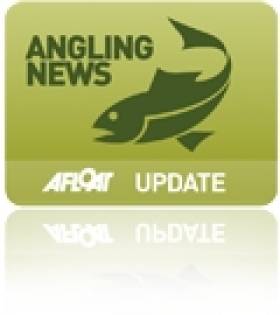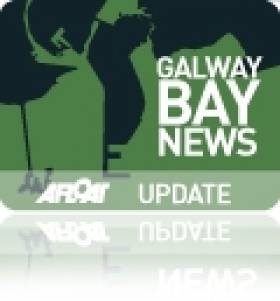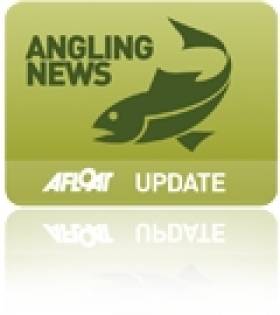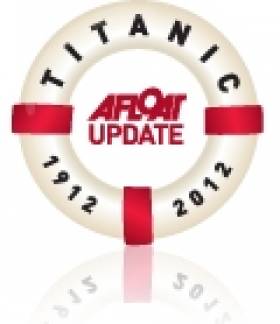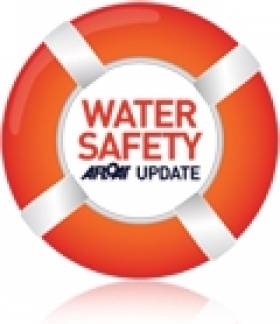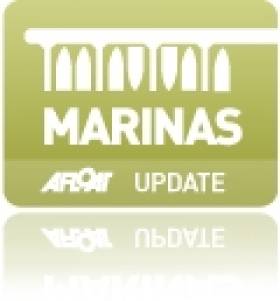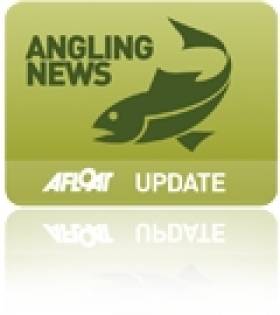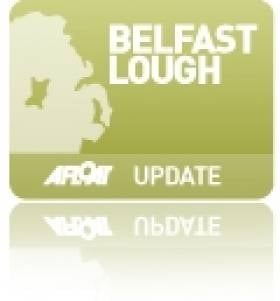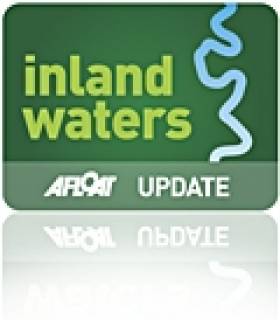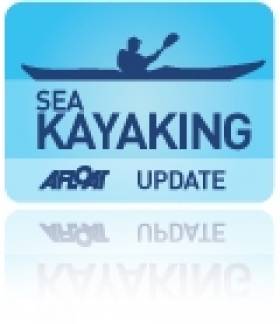Displaying items by tag: tourism
Low Cost Licences To Encourage Angling Tourism Says Minister
#Angling - The Minister of State for Natural Resources has said the unchanged cost of fishing licences this year should encourage angling tourism in Ireland.
Commenting Thursday on his approval of the new regulations and by-laws for Ireland's wild salmon fishery which came into force on 1 January, Minister Fergus O'Dowd said: "Last year I lowered the cost of fishing licences and I have decided to maintain that price cut for 2013.
"I am anxious that lower costs will encourage sales of annual licences and incentivise angling tourists to avail of the Ireland’s first-class angling product."
Last week Afloat.ie reported that the Irish Times' angling correspondent Derek Evans welcomed the regulation changes for the start of this year's salmon season.
In an update to previously reported figures, conservation measures for this year involve the closure of 58 rivers due to a lack of surplus fish, down from 64 closures in 2012, while 62 rivers are open for fishing in what marks a significant rise on last year.
"This will provide opportunities for commercial fishermen and anglers to share this important resource on a sustainable basis," the minister commented.
Additionally, the Wild Salmon and Sea Trout Tagging Scheme regulations are "in essence unchanged" from last year.
IFI Board Issues Statement on Galway Bay Fish Farm
#GALWAY FISH FARM - The board of Inland Fisheries Ireland (IFI) has issued a statement on the proposed Aran Islands deep sea salmon farm in Galway Bay, which has been the source of some controversy in recent weeks.
The board said it agrees with the recent statement by Minister Fergus O’Dowd on offshore salmon farming, and that it welcomes the development of Ireland’s aquaculture sector "once any development complies with Ireland’s obligations under relevant EU environmental legislation, particularly the Habitats Directive, and does not adversely affect salmon and sea trout stocks."
In addition, the IFI board said it has made a submission on the Environmental Impact Statement (EIS) prepared by Bord Iascaigh Mhara (BIM) for the proposed offshore salmon farm as part of the public consultation process, which is available on the IFI website.
As previously reported on Afloat.ie, the public consultation period began last month for the 500-hectare organic fish farm to be located off Inis Oirr. BIM has applied for a deep sea salmon farming licence at the site, which would be one of the largest of its kind in Europe. If approved, the operation could more than double Ireland's current farmed salmon production rate.
The IFI board's statement notes: "In the submission, concerns were raised in relation to the location and scale of the proposed salmon farm and how its development and operation could impact on wild salmon and sea trout stocks and their habitat.
"These concerns are based on scientific reports by respected authors and knowledge of the impact of existing fish farms on salmon and sea trout populations off the west coast of Ireland."
The submission also highlights "recent peer reviewed international scientific literature on the impacts of sea lice on salmonids" which poses a significant threat to wild salmon in Irish waters, as reported on Afloat.ie.
The board said it does not believe "that the corpus of peer reviewed international scientific literature which recognises the negative impacts of sea lice on salmonids have been adequately dealt with in the EIS".
While welcoming "any sustainable initiative which will provide jobs in rural coastal communities", the IFI board said it questions the figure of 500 jobs it's been reported the 15,000-tonne fish farm project would create, making comparison to a new 2,000-tonne aquaculture scheme in Scotland that's expected to create just four full-time positions.
The board members say they "have serious concerns that whatever the number of jobs created by the current proposal, they will be more than offset by the associated loss of jobs in the recreational angling and tourism sectors" if the scheme results in any negative effects on those areas.
"Ireland's reputation as a pristine wild fishery destination must be safeguarded," they added, noting that proposals for two further offshore salmon farms in Mayo and Donegal "are premature given that significant issues over the current proposal have not yet been resolved.
"No further applications should be progressed until all stakeholders are satisfied that the current proposal is sustainable and has no adverse impact on wild salmon and sea trout stocks."
Inland Fisheries Ireland is the State agency charged with the conservation, protection, development management and promotion of Ireland's inland fisheries and sea angling resource.
Bass Fail to Show at First Hook Bass Angling Festival
#ANGLING - Bitterly cold weather and some hungry marine mammals kept the bass away from the inaugural Hook Bass Angling Festival in Wexford last weekend, as The Irish Times reports.
The angling went on regardless, however, with Mark Baker from Co Meath hooking a 1.5kg 'schoolie' of a flounder to take top prize of a five-day holiday at Grangecourt Holiday Homs and a day's fishing with Jim Foley.
All taking part enjoyed the weekend despite the absence of the titular fish, and promised to return next year - for which the dos and don'ts will be ironed out, according to Cathy Howlin of Hook Tourism.
Meanwhile, the weekend also featured an evening talk by Dr Ed Fahy who discussed the threat to Ireland's sea bass should the fishery be opened to commercial interests, and argued the case for bass angling tourism as a greater boon for the economy.
Titanic Quarter Developer Makes a Loss
#TITANIC - Titanic Island, the company at the head of the consortium developing Belfast's Titanic Quarter, made a pre-tax loss of £20 million (€25 million) in 2011, as BBC News reports.
Much of this has been attributed to a one-off payment of £13 million (€16.25 million) to the charitable trust that owns the new Titanic Belfast visitor centre on the shores of Belfast Lough.
The company's directors described the opening of the tourism hot-spot as the "tipping point" for the development and that "the pieces are in place" for the Titanic Quarter to become one of Ireland's most important commercial hubs.
Meanwhile, Titanic Island is in discussions with Ulster Bank about restructuring its loan support, which the firm's auditors say is essential if the development is to continue.
BBC News has more on the story HERE.
Tourist Dies in Cape Town Charter Boat Capsize
#WATER SAFETY - Irish tourists headed to South Africa have been reminded of the dangers of the sea after a whale-watching vessel capsized near Cape Town at the weekend.
As BBC News reports, British tourist Peter Hyett and crewman John Roberts died when the catamaran Miroshga capsized off Hout Bay on the eastern side of the Cape Peninsula, near the popular seal colony of Duiker Island.
A number of the 39 passengers on board at the time were trapped in the vessel for almost four hours before they were freed by rescuers.
The seas off Hout Bay are a mecca for whale and seal watching, but are known to be rough, with hidden rocks below the surface. Great white sharks are also a regular sight in the waters, attracted by the seals.
But fellow skippers in the area reported fine weather and only slight swells at the time of the capsizing, according to iAfrica.com.
An investigation into the incident is being launched.
New Facilities for Stranraer Marina Hoped to Boost Numbers
#MARINAS - The new shore block at Stranraer Marina is the latest project to benefit from the Sail West initiative across western Scotland, Northern Ireland and the northwest coast of Ireland.
As the Galloway Gazette reports, the new waterfront building comprises a permanent harbour office, coastguard base, showers and toilets, as well as a community education room.
“The ongoing development of the marina is key to branding Stranraer as a marine leisure destination," said local councillor Roberta Tuckfield.
"Plans to add more pontoons and another breakwater should bring in additional pleasure craft, increasing tourism numbers benefiting the whole town.”
The marina improvements have been made with the goals of boosting the number of marine leisure users in Stranraer, fitting in with Sail West and its cross-border MalinWaters marine tourism brand across the channel.
Sail West is an international scheme, headed by Donegal County Council and Larne Borough Council, which aims to encourage mariners to enjoy the North Channel coastlines of Scotland, Ireland and Northern Ireland.
Other projects recently supported under the rubric of the Sail West initiative include the new coastal marina facility at Ballycastle Harbour in north Antrim and this summer's Clipper Festival in Derry.
The Galloway Gazette has more on the story HERE.
Northern Ireland Wild Salmon Stocks 'Around Dodo Levels'
#SALMON THREAT - Just three out of every 100 wild salmon returned to Northern Ireland's rivers last year - prompting concerns that the species has declined past the point of no return, as the Belfast Telegraph reports.
Following a recent meeting of the Stormont culture, arts and leisure committee where the issue was discussed, South Belfast MLA Michael McGimpsey shared his belief "that the public do not appreciate just how precarious the situation is.
"It is estimated that 1,000 to 1,500 salmon return to Northern Ireland each year to spawn. Of these, half are wild salmon and the other half locally hatched salmon.”
McGimpsey said it is "beyond question that there has been a serious collapse in local wild salmon numbers and this is a situation which has implications, not just for local anglers but for our tourist industry."
Claiming that NI's wild salmon stocks are now "around dodo levels", he demanded "totally drastic action in and around salmon" to ensure the species' future.
Earlier this year, as previously reported on Afloat.ie, Northern Ireland's Department of Culture, Arts and Leisure (DCAL) has called for a voluntary ban on offshore salmon fishing.
The move to stop issuing licences for commercial salmon nets that may "contravene European law" off Antrim's north coast was welcomed by river angling campaigners NoSalmonNets, who have been using social media to promote their cause.
Meanwhile, DCAL insists that any court action from salmon netters who may challenge the ban "should not prove an obstacle" to extending the salmon stock preserving measures. Proposals will be put to the minister by the end of this month with a view to enacting legislation next year.
The Belfast Telegraph has more on the story HERE.
Record Year for Cruise Visits in Belfast
#BELFAST LOUGH - Belfast may no longer be building ships but it's certainly attracting them as 2012 marks a record year for luxury cruise ship numbers, according to BBC News.
Nearly 80,000 passengers and crew from 111 different countries have come through the city's port via 43 cruise liners since the start of this year's cruise season - and more than 50 are expected to sail into Belfast Lough in 2013.
Northern Ireland's tourism hotspots are the big attraction for most, from the world-renowned Giant's Causeway to the new Titanic Belfast visitor centre - but curiosity is also a big driver.
"A lot of people are curious about Belfast and Northern Ireland," said Gerry Lennon of the Belfast Visitor and Convention Bureau. "The political stability has given us that ability to go to the market-place and now say 'look what we have to offer'."
BBC News has much more on the story HERE.
Minister Proposes Dublin-to-Galway Cycle Path Via Royal Canal
#ROYAL CANAL - The Royal Canal towpath is an "obvious candidate" for a stretch of the new cross-country cycle route from Dublin to Galway proposed by the Minister or Transport.
The Irish Times reports that Minister Leo Varadkar has instructed the National Transport Authority (NTA) to examine possible routes for the project, which would involve development of the present towpath along the waterway from Mullingar to Maynooth.
The NTA is already funding preparatory work with a view to upgrading the canal path as a premium quality Greenway Route for cyclists and pedestrians in the Fingal area from Ashtown to Westmanstown - and will now look at the feasibility of extending this project through Leixlip to Maynooth.
“A national off-road cycle trail would be a first for Ireland and would be a great tourism asset," said the minister, who added that the scheme has "the potential to bring in at least €15 million per annum, much of that going straight into local businesses along the route.”
Hop in a Kayak to See Galway By Sea
#SEA KAYAKING - One of the best ways to see the sights of Galway is by sea, as Belfast writer Mark McCormick found out recently.
Writing in the Belfast Telegraph, he describes the "spectacularly beautiful scenery" and "medley of contrasts" he and his wife were treated to on a two-day guided sea kayaking tour of the region surrounding the City of the Tribes.
Being kayaking novices was no barrier to the couple as they paddled in a calm Kinvara Bay at sunset with a guide from Outdoors Ireland, joined by some playful seal pups, before drifting on to the preserved 16th-century Dunguaire Castle - one of the west's most popular tourism spots.
More urban sights were in store the next day as they joined a bigger group for a tour of the city's docks and the Claddagh, including the area's famous swans.
Outdoors Ireland has much more from the Telegraph story HERE.



























